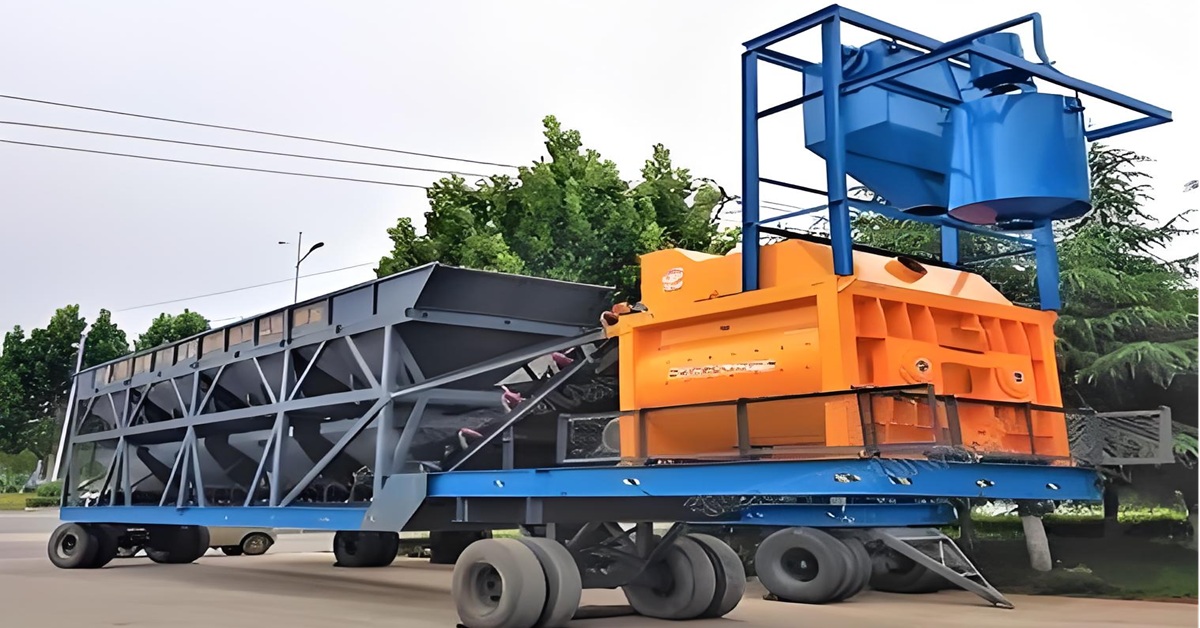Mobile batching plants, also known as portable concrete plants, are revolutionizing modern construction projects. Combining flexibility, efficiency, and advanced technology, these units are designed to meet the dynamic demands of today’s infrastructure development. Below, we explore their key advantages and diverse applications to help industry professionals understand their value.

Unmatched Flexibility and Mobility
Mobile batching plants are compact and easily transportable, enabling rapid deployment to remote or challenging sites. Unlike stationary plants, they eliminate the need for permanent infrastructure, making them ideal for projects with shifting locations, such as highway construction or disaster recovery.
Cost-Effectiveness
By reducing logistics expenses (e.g., concrete transportation costs) and minimizing labor and setup time, mobile plants lower overall project budgets. They also avoid long-term investments in fixed facilities.
Quick Installation and Operation
Modern mobile plants can be assembled within hours, ensuring minimal downtime. Automated systems streamline batching accuracy, reducing human error and material waste.
Environmental Sustainability
Advanced models incorporate energy-efficient motors, dust control systems, and recyclable water usage. These features align with global green construction standards and reduce carbon footprints.
Adaptability to Diverse Projects
With customizable configurations, mobile plants can produce varying concrete grades and volumes, catering to small-scale repairs or large infrastructure developments.
Infrastructure Projects
Urban and Rural Development
Emergency and Disaster Recovery
Deployed swiftly for post-disaster reconstruction (e.g., earthquake-damaged roads or flood-affected zones) to restore critical infrastructure.
Mining and Industrial Sites
Used in remote mining operations to produce durable concrete for foundations, pipelines, and storage facilities.
Temporary Projects
Perfect for events (e.g., stadium renovations) or military installations requiring temporary, high-quality concrete solutions.
A 2024 highway expansion project in Australia utilized mobile batching plants to reduce transportation costs by 40% and complete the project 3 weeks ahead of schedule. The plant’s mobility allowed seamless relocation as construction progressed, demonstrating its operational superiority.
Mobile batching plants are indispensable tools for modern construction, offering unparalleled flexibility, cost savings, and environmental benefits. As infrastructure demands grow, adopting these systems can significantly enhance project timelines, quality, and sustainability.
Interested in integrating mobile batching plants into your next project? Contact industry experts today to explore tailored solutions!
Need help deciding?
📞 Contact our experts for a free consultation
📧 Email: wenqiang@manxingim.com
☎ WhatsApp: +86 159 3903 7000